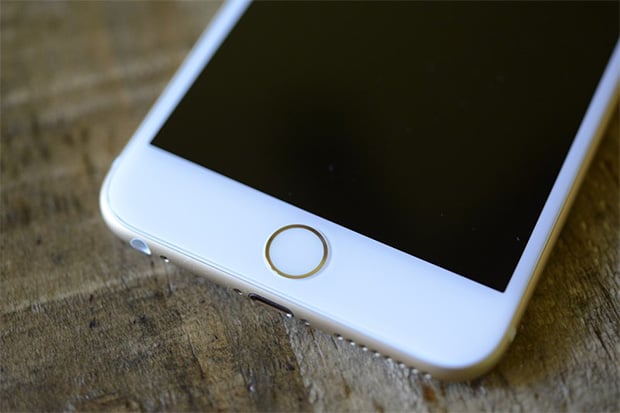Apple Faces Class Action Lawsuit For Device Bricking Error 53 Touch ID Lockdown
Apple offered a logical explanation as to why iPhone 6 users might see the dreaded "Error 53" code on their smartphone after having an unauthorized repair person replace a defective screen, but will that explanation hold up in court? A class action lawsuit filed in the U.S. District Court for the Northern District of California aims to find out.
Let's back up a moment. The Error 53 code appears on iPhone 6 and iPhone 6s devices that detect a change to the Touch ID sensor. It's a security feature designed to prevent unauthorized users from being able to access a person's sensitive data and to ensure that Apple Pay and other "iOS features related to Touch ID remain secure."

Normally that wouldn't be a problem, but screen repairs are tricky business. For that reason, iPhone 6 screen replacements are often sold as one complete unit—display panel, front glass, front camera, Home button, and Touch ID sensor. It makes repairs easier, though apparently it can also brick an iPhone if it fails a security check, which it's likely to do once it's detected that the new Touch ID sensor isn't the original one. That's what triggers the Error 53 code and the only recourse is to buy a new handset.
The lawsuit alleges that Apple has taken things too far with its control over iPhone hardware and says that the Error 53 code "has rendered thousands of the affected models completely disabled or bricked after its users updated iOS or restored the device from a backup." Furthermore, the lawsuit blasts Apple for not warning customers about the security feature that could ultimately render their pricey smartphone little more than a hunk of junk.
"No materials we've seen from Apple ever show a disclosure that your phone would self-destruct if you download new software onto a phone. If Apple wants to kill your phone under any set of circumstances and for any reason, it has to make it crystal clear to its customers before the damage is done," the lawsuit states.
Lawyers handling the lawsuit are suing for $5 million in damages plus restitution for affected users. They also want Apple to update its software to remove the restriction that bricks iPhones if it detects a replacement Touch ID sensor.
Let's back up a moment. The Error 53 code appears on iPhone 6 and iPhone 6s devices that detect a change to the Touch ID sensor. It's a security feature designed to prevent unauthorized users from being able to access a person's sensitive data and to ensure that Apple Pay and other "iOS features related to Touch ID remain secure."

Normally that wouldn't be a problem, but screen repairs are tricky business. For that reason, iPhone 6 screen replacements are often sold as one complete unit—display panel, front glass, front camera, Home button, and Touch ID sensor. It makes repairs easier, though apparently it can also brick an iPhone if it fails a security check, which it's likely to do once it's detected that the new Touch ID sensor isn't the original one. That's what triggers the Error 53 code and the only recourse is to buy a new handset.
The lawsuit alleges that Apple has taken things too far with its control over iPhone hardware and says that the Error 53 code "has rendered thousands of the affected models completely disabled or bricked after its users updated iOS or restored the device from a backup." Furthermore, the lawsuit blasts Apple for not warning customers about the security feature that could ultimately render their pricey smartphone little more than a hunk of junk.
"No materials we've seen from Apple ever show a disclosure that your phone would self-destruct if you download new software onto a phone. If Apple wants to kill your phone under any set of circumstances and for any reason, it has to make it crystal clear to its customers before the damage is done," the lawsuit states.
Lawyers handling the lawsuit are suing for $5 million in damages plus restitution for affected users. They also want Apple to update its software to remove the restriction that bricks iPhones if it detects a replacement Touch ID sensor.

